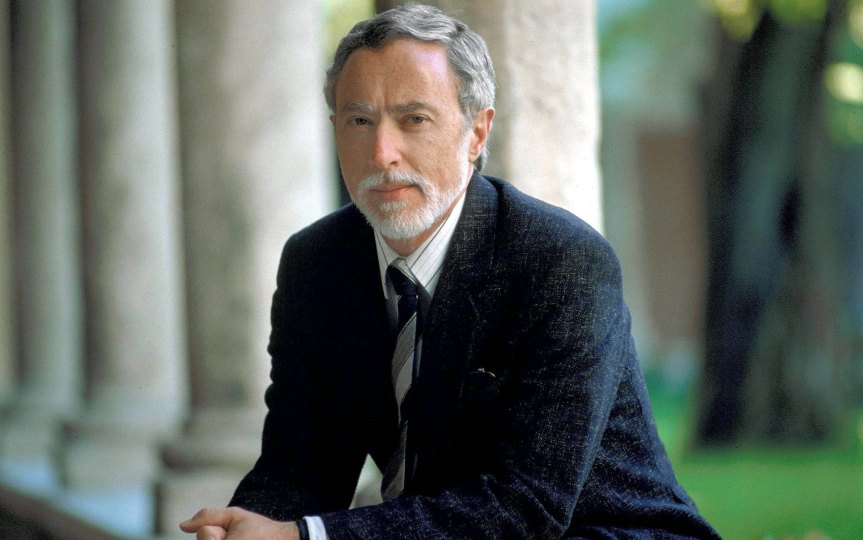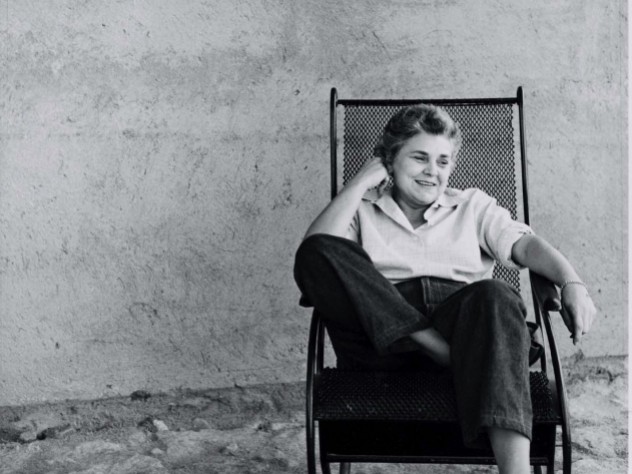De Zuidafrikaanse schrijver John Maxwell Coetzee werd geboren op 9 februari 1940 in Kaapstad. Zie ook alle tags voor John Coetzee op dit blog.
Uit: The Death of Jesus
“It is a crisp autumn afternoon. On the grassy expanse behind the apartment block he stands watching a game of football. Usually he is the sole spectator of these games played between children from the block. But today two strangers have stopped to watch too: a man in a dark suit with, by his side, a girl in school uniform.
The ball loops out to the left wing, where David is playing. Trapping the ball, David easily outsprints the defender who comes out to engage him and lofts the ball into the centre. It escapes everyone, escapes the goalkeeper, crosses the goal line.
In these weekday games there are no proper teams. The boys divide up as they see fit, drop in, drop out. Sometimes there are thirty on the field, sometimes only half a dozen. When David first joined in, three years ago, he was the youngest and smallest. Now he is among the bigger boys, but nimble despite his height, quick on his feet, a deceptive runner.
There is a lull in the game. The two strangers approach; the dog slumbering at his feet rouses himself and raises his head.
‘Good day,’ says the man. ‘What teams are these?’
‘It is just a pick-up game between children from the neighbourhood.’
‘They are not bad,’ says the stranger. ‘Are you a parent?’
Is he a parent? Is it worth trying to explain what exactly he is? ‘That is my son over there,’ he says. ‘David. The tall boy with the dark hair.’
The stranger inspects David, the tall boy with the dark hair, who is strolling about abstractedly, not paying much attention to the game.
‘Have they thought of organizing themselves into a team?’ says the stranger. ‘Let me introduce myself. My name is Julio Fabricante. This is Maria Prudencia. We are from Las Manos. Do you know Las Manos? No? It is the orphanage on the far side of the river.’
‘Simón,’ says he, Simón. He shakes hands with Julio Fabricante from the orphanage, gives Maria Prudencia a nod. Maria is, he would guess, fourteen years old, solidly built, with heavy eyebrows and a well developed bust.
‘I ask because we would be happy to host them. We have a proper field with proper markings and proper goalposts.’
‘I think they are content just kicking a ball around.’
‘You do not improve without competition,’ says Julio.
‘Agreed. On the other hand, forming a team would mean selecting eleven and excluding the rest, which would contradict the ethos they have built up. That is how I see it. But maybe I am wrong. Maybe they would indeed like to compete and improve. Ask them.’

De Amerikaanse dichteres en schrijfster Elizabeth Bishop werd geboren op 8 februari 1911 in Worcester, Massachusetts. Zie ook alle tags voor Elizabeth Bishop op dit blog.
Een wonder als ontbijt
Om zes uur zaten wij te wachten op koffie,
op koffie en de barmhartige kruimel
te serveren vanaf een bepaald balkon,
– als koningen van weleer, of als een wonder.
Het was nog donker. Een voet van de zon
vond steun op een lange rimpel in de rivier.
De eerste veerboot was net aan de overkant van de rivier.
Het was zo koud dat wij hoopten dat de koffie
gloeiend heet zou zijn, wel begrijpend dat de zon
ons niet zou verwarmen; noch dat de kruimel
een brood de man zou worden, beboterd, als door een wonder.
Om zeven uur betrad een man het balkon.
Een minuut lang stond hij alleen op het balkon
en keek over onze hoofden naar de rivier.
Een bediende overhandigde hem de ingrediënten voor een wonder,
bestaande uit een enkele kop koffie
en een stuk brood, dat hij brak, kruimel voor kruimel,
zijn hoofd, als het ware, in de wolken – samen met de zon.
Was de man gek? Wat onder de zon
probeerde hij te doen, daarboven op zijn balkon!
Eenieder ontving een tamelijk harde kruimel,
die sommigen vol minachting wegtikten in de rivier,
en, in een kopje, één druppel van de koffie.
Sommigen van ons bleven talmen, wachtend op het wonder.
Ik kan vertellen wat ik daarna zag; het was geen wonder.
Een mooie villa stond in de zon
en uit al haar deuren stroomde de geur van hete koffie.
Aan de voorkant, een barok wit gipsen balkon
uitgebouwd door vogels, die nestelen langs de rivier,
– ik zag het met één oog vlak bij de kruimel –
en gaanderijen en marmeren kamers. Mijn kruimel
mijn woonstee, voor mij gemaakt door een wonder,
door tijd, insecten, vogels, en door de rivier
die stenen bewerkt. Elke dag, in de zon
als het tijd voor ontbijt is, zit ik op mijn balkon
met mijn voeten omhoog, en drink mokken vol koffie.
We likten de kruimel op en slurpten de koffie.
Een raam aan de overkant van de rivier ving de zon
alsof het wonder plaatsgreep, op het verkeerde balkon.
Vertaald door J. Bernlef

Zie voor nog meer schrijvers van de 9e februari ook mijn blog van 9 februari 2019 en mijn blog van 9 februari 2017 en ook alle drie blogs van 9 februari 2014.













